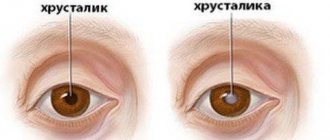In this article we will look at the difference between a urologist and a nephrologist. We will also find out what types of diseases they can cure.
Modern medicine has reached unprecedented heights, and all thanks to the fact that today there are a huge number of specialists of a wide and narrow profile. For a person who is unaware or has not encountered specific diseases, it is sometimes difficult to unambiguously determine which ailment and which doctor should be treated. Today we will talk about specialists such as a urologist and nephrologist and figure out which of them treats which diseases.
Nephrologist and urologist - how they differ, they are the same thing: similarities and differences between professions
First, let's define the concepts of “urology” and “nephrology” since both professions are related to them.
- So, urology is a science that studies diseases associated with the genitourinary organs
- Nephrology, in turn, is a science that studies kidney diseases, as well as their functions.
Based on this, it is easy to understand who is a nephrologist and who is a urologist:
- A urologist is a specialist who primarily specializes in the treatment of the genitourinary system. This doctor also treats “male” diseases, such as impotence, diseases of the prostate gland and the genital organ itself. It must be said that a urologist ideally does not treat those genitourinary diseases that cannot be cured surgically
- A nephrologist is a doctor who treats the kidneys. In principle, this specialist deals only with this organ, since his specialty is considered narrow
Now let us give a comparative description of these professions. What these professions have in common is that their representatives are involved in the treatment of the urinary system.
Difference in Specialization
Next, let's talk about the differences between these professions. A nephrologist is a general practitioner, and a urologist is, first of all, a surgeon:
- What does it mean? The nephrologist carries out diagnostics and treatment exclusively with medications. That is, in the treatment of the genitourinary system and urinary organs, so-called gentle treatment methods are used
- The urologist in his work resorts to both medicinal and surgical treatment of patients
- Doctors differ in their specialization:
- A nephrologist is a specialist with a narrow focus who treats exclusively kidney diseases
- The activity of a urologist is to treat a much larger number of diseases, that is, he is a general practitioner
- Availability in remote locations:
- Not every clinic can see a nephrologist
- A urologist is a specialist who must be present in any clinic. Based on this, it often happens that the urologist is the one who treats the kidneys
Having understood what these two sciences are and who nephrologists and urologists are, we can say with confidence that these professions are not the same, although they relate to the same system of the human body.
What does a urologist do: what diseases should you go to him for?
A urologist is a specialist who deals with the entire human excretory system. Due to the fact that some human organs are bifunctional, the urologist’s sphere of interest includes the organs of the reproductive system involved in excretion. A urologist evaluates the anatomy of the genitourinary system, looks for pathologies or investigates the causes of the disease. Offers methods of prevention or treatment. Possibly surgical.
There are many sections in urology - pediatric and geriatric, men's (andrology) and women's (urogynecology), phthisiourology (uberculosis) and oncourology. Plus - emergency urology. Each section has its own specialists.
As you can see, nephrology and urology are quite close. The kidneys, as an element of the human excretory system, are the area of interest of urologists. But nephrologists solve problems with the kidneys in the prism of the work of the whole organism.
Who treats kidneys, pyelonephritis, cystitis: a urologist or a nephrologist?
These ailments are probably well-known to everyone, but in order to talk about them, you need to know exactly what they are. Therefore, to begin with, we will say a few words about these diseases, or rather, we will give them definitions.
- Pyelonephritis is a kidney disease of an infectious-inflammatory nature. The disease is caused by pathogens that enter the kidneys through the human urinary system. It is much less common to get pyelonephritis due to staphylococci and enterococci
- Cystitis is a disease that affects the human bladder. It all happens as follows: in the lining of the bladder, due to a bacterial infection, an inflammatory process begins, which is accompanied by burning, pain and discomfort when urinating
Doctor who treats kidneys
Based on the above, we can draw very clear conclusions:
- Since pyelonephritis is a kidney disease, it is treated by a nephrologist, just like all other ailments of this organ
- Cystitis is a urological disease, so its treatment is carried out by none other than a urologist. It is worth saying that due to a certain lack of medical education, women very often go to a gynecologist with this disease, which is fundamentally wrong. Remember, diseases of the urinary system should only be treated by a urologist.
What diseases do a urologist and nephrologist treat in women, men, pregnant women and children: a list of diseases
Since these doctors have slightly different specializations, they treat different diseases.
Let's start with the urologist.
It must be said right away that today there are such areas of urology: children's, women's, men's and geriatric (treatment of urological ailments in older people).
A pediatric urologist treats the following diseases in children:
- Cystitis
- Hydronephrosis
- Urea exstrophy
- Various defects of the genital organ, which can be either congenital or acquired
- Hypospadias
- Cysts on the testicles, appendages
- Tumors, both benign and malignant
- Phimosis
- Incontinence
- Cryptorchidism
- Hydrocele
- Other ailments of the genitals and scrotum
For pregnant girls and women, this specialist treats:
- Inflammation of the bladder
- Inflammation of the urethra
- Incontinence
- Bladder stones
- Tissue changes in the genital area
Regarding pregnant women, I would like to say the following: a visit to a specialist such as a urologist is absolutely not necessary if they are in good condition. However, if before pregnancy a woman suffered from urological diseases, then even their absence at the moment does not exclude the need to visit such a specialist.
Since a urologist is considered to be a “male” doctor, the largest list of ailments that are treated by this specialist is specifically for representatives of the stronger sex:
- Prostatitis – inflammation of the prostate
- Adenoma is a benign tumor of the glandular epithelium
- Urolithiasis
- Impotence – expressed in the inability to use one’s genitals for their intended purpose due to a decrease or complete disappearance of their activity
- Hydrocele
- Cystitis
- Varicocele is a venous disease of the male reproductive system.
- Urethritis is an inflammatory disease of the urethra
- Candilomatosis - growths in the form of warts that form on the anus
Now let's move on to the ailments that a nephrologist treats.
Attending doctor
A pediatric nephrologist treats the following diseases:
- Kidney dysplasia, that is, underdevelopment of this organ
- Dysmetabolic nephropathy is a kidney disease that appears due to metabolic disorders
- Tubulopathy is a severe disease that results in dysfunction of the renal tubules.
- Pyelonephritis, which is typical for children
- Glomerulonephritis is a kidney disease that affects the glomeruli of the kidneys
Women and men are treated by these specialists for the following diseases:
- Kidney failure
- Nephropathy (drug-induced)
- Hydronephrosis
- Amyloidosis
- Polycystic kidney disease
- Stones in the kidneys
- Pyelonephritis
What diseases does a nephrologist deal with and what does he do at the appointment?
A nephrologist is a specialist who deals with the kidneys. “His” diseases are kidney stones, kidney cancer, acute and chronic renal failure, pyelonephritis and glomerulonephritis, blood in the urine or hematuria. Due to the fact that diseases that affect the kidneys appear as a result of systemic disorders of the body, the nephrologist is forced to solve problems comprehensively, with an eye to other organs and systems of the body.
For example, malfunctions of the kidneys affect the functioning of the digestive system. Then renal-liver failure syndrome may develop. In addition, chronic kidney disease causes cardiovascular disease (eg, pericarditis or myocardial infarction) over time. Kidney dysfunction changes the body's metabolism and so on. Therefore, a patient with a cardiologist, endocrinologist, gynecologist and andrologist, neurologist, hematologist and, of course, a urologist may need to consult a nephrologist.
What does a nephrologist do during an appointment? First, he examines the person. Visual analysis of appearance - swelling of the legs, bruises under the eyes, skin color - allows the specialist to establish the direction of search and diagnosis. Secondly, nephrologists prescribe tests that will show the condition of the body as a whole. Based on their results, the diagnosis deepens. Or the problem is solved in conjunction with the organ system, the failure of which affected the functioning of the kidneys.
When to see a urologist and when to see a nephrologist?
Now that we know exactly what diseases these two specialists deal with, it will be very easy for us to understand when we should go to a nephrologist, and when a consultation with a urologist would be more appropriate.
A man should make an appointment with a urologist if he has the following symptoms:
- Discharge from the urethra. Normally, in men, only urine and semen should be released from the urethra
- Discomfort in the urethra, which can result in itching and burning
- Periodic or constant pain in the testicles, anus and near it, perineum, and lower back
- Changes in the nature of urination (constant desire to go to the toilet “in a small way”, inability to urinate)
- Any changes in the color of urine and semen. The appearance of blood or pus in the indicated secretions
- The appearance of various warts, growths, and persistent acne in the genital area
- Lack of sexual desire or inability to use the sexual organ for its intended purpose
- Change in the nature of erection
- General fatigue, irritability
- Other symptoms that may also indicate any diseases that this doctor treats - for example, changes in the color or shape of the genitals
A woman should go to a urologist if she has:
- Pain above the pubis, in the lower back and abdomen, which can be either dull, aching or cutting cramping
- Constant feeling of a full bladder
- Discharge from the urethra is usually white and yellow
- Discomfort of the external genitalia (may burn, itch, burn)
- Increased body temperature
- An unpleasant odor in urine
- Sediment in urine
When to go to the doctor
The child should be seen immediately by a urologist if:
- The baby cannot go to the toilet “in a small way”
- There is pus, blood, and other strange impurities in the child’s urine
- The genitals have changed color, size (edema, swelling, redness)
- Incessant pain in the abdomen and lower back
Well, now let’s see when it’s worth going to a nephrologist.
Most often, people get an appointment with a nephrologist after being referred by another doctor, who, after doing general tests and examination, determined that the problem is in the kidneys. However, children, women and men need to consult a nephrologist in the following cases:
- Anuria is observed, that is, a person cannot go to the toilet at all
- Oliguria is a condition in which a person goes to the toilet much less often, while the volume of urine decreases significantly
- Polyuria – on the contrary, the volume of urine increases significantly
- Pain in the lumbar area
- Blood, protein in urine
- For all kidney diseases
As you can see, a urologist and a nephrologist are different doctors, and the specifics of their professions are significantly different. Despite this, in practice, a urologist is very often involved in the treatment of kidney diseases, for the simple reason that it is very difficult to find such a specialist as a nephrologist.









